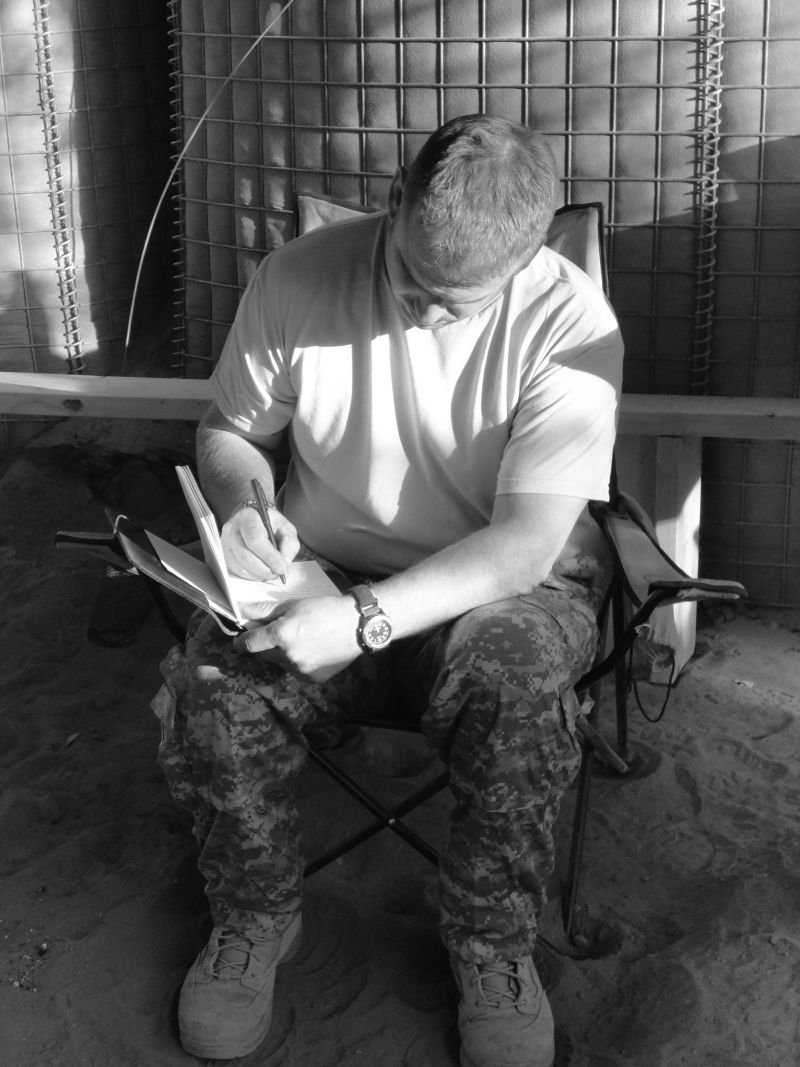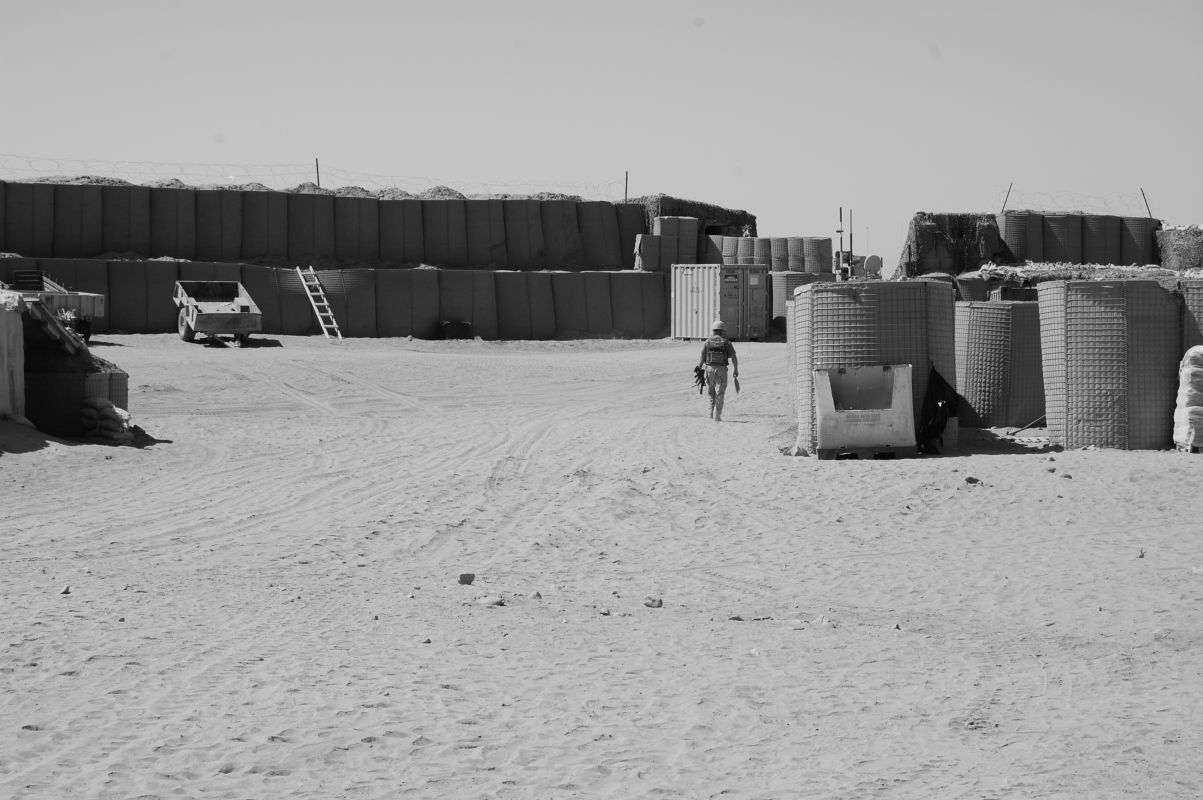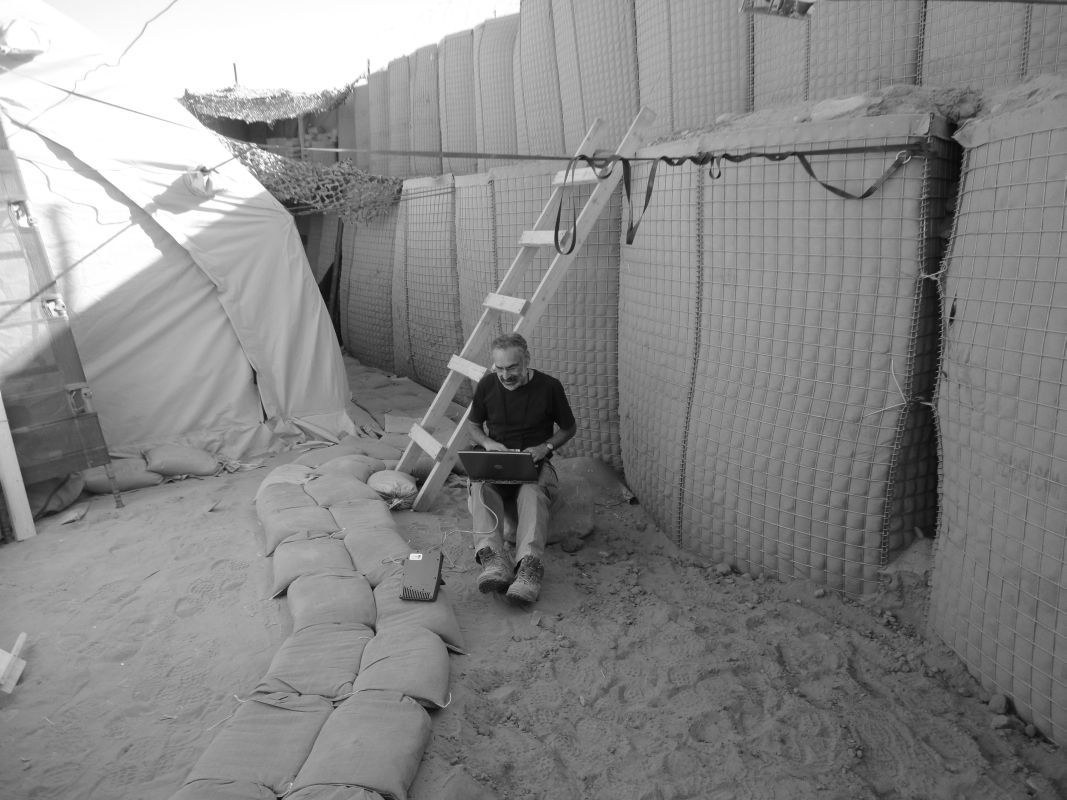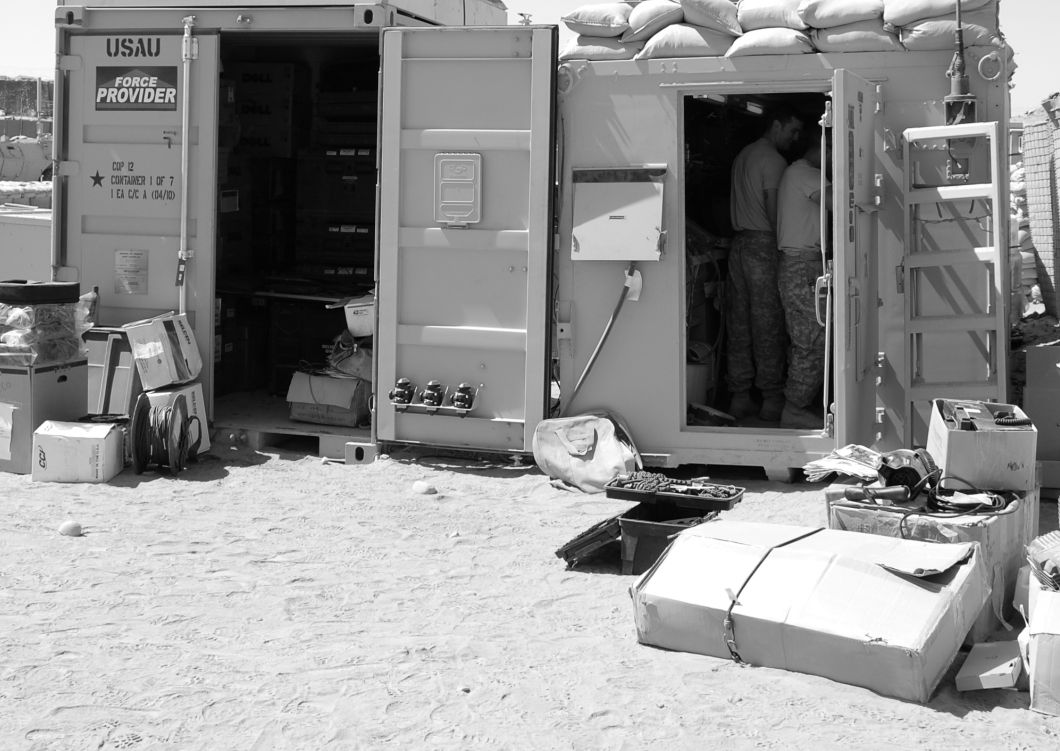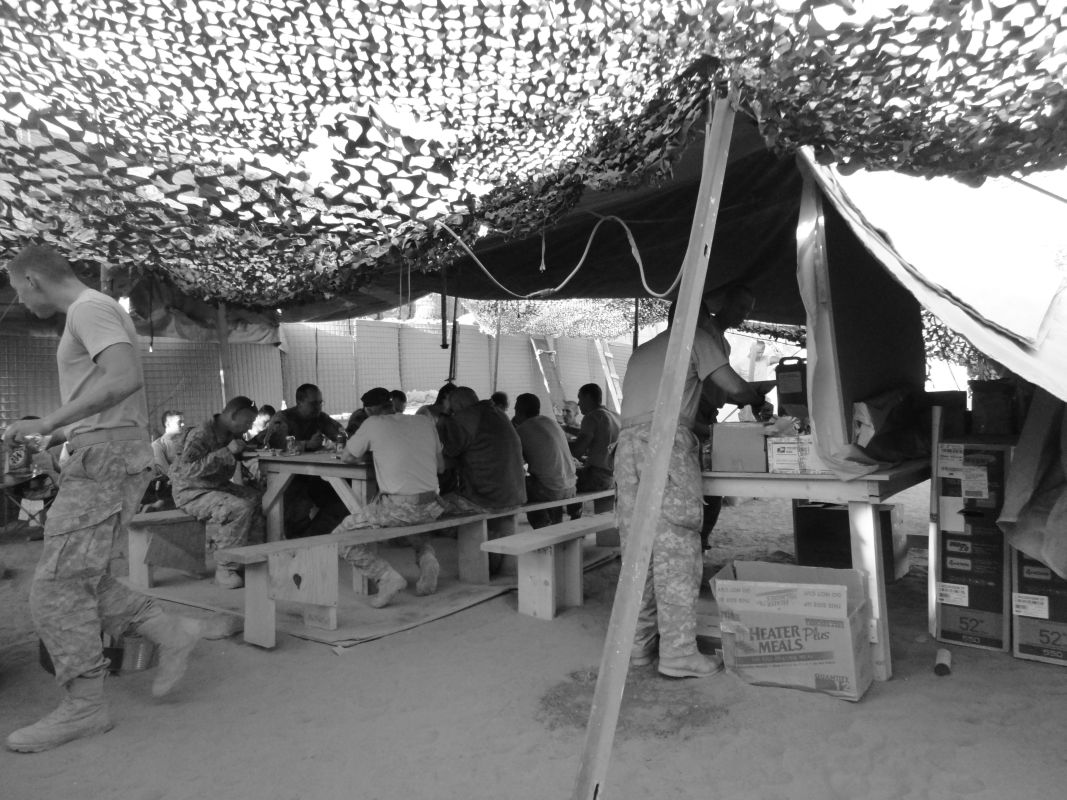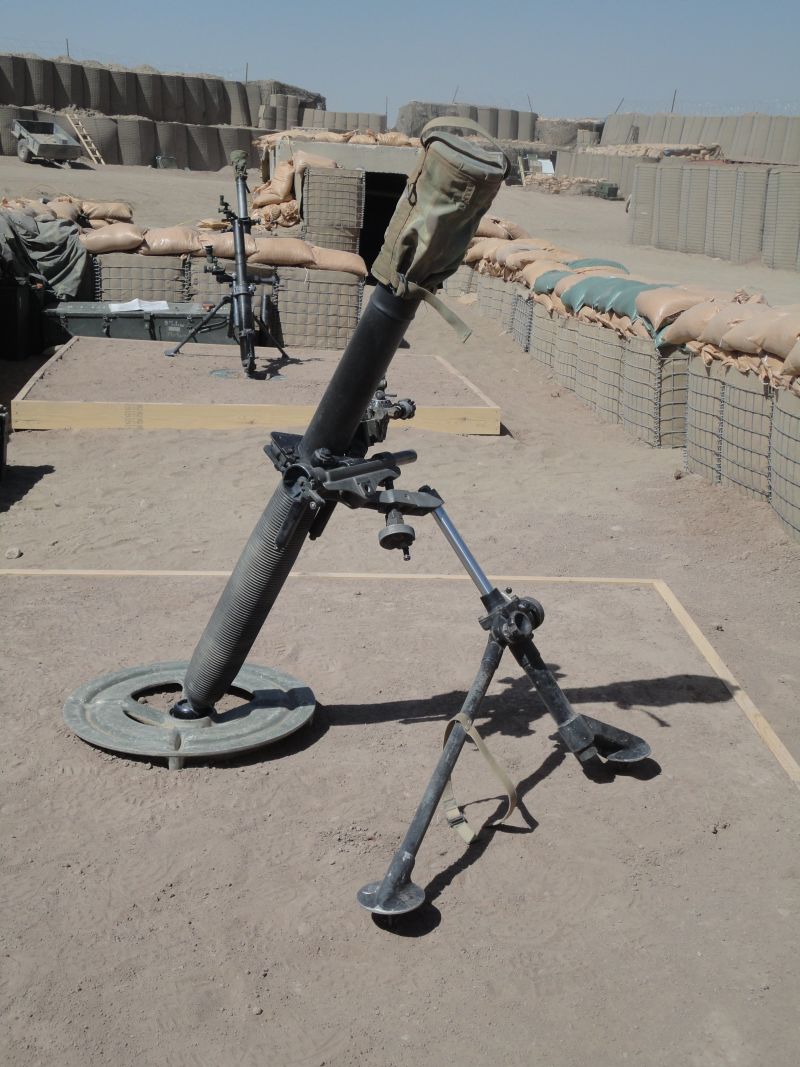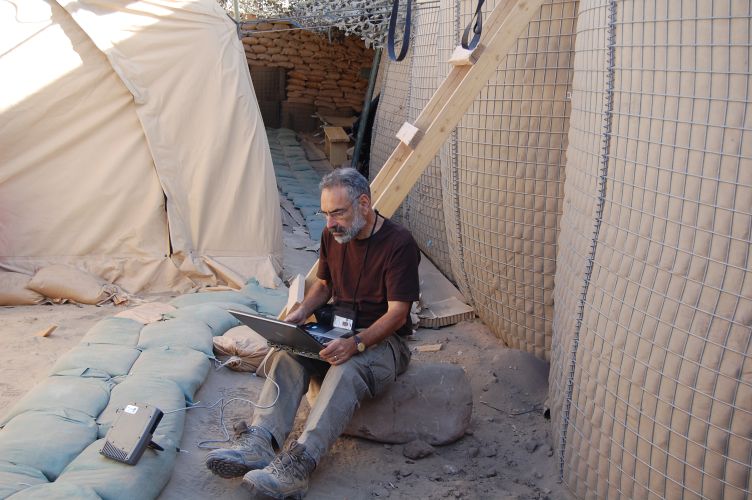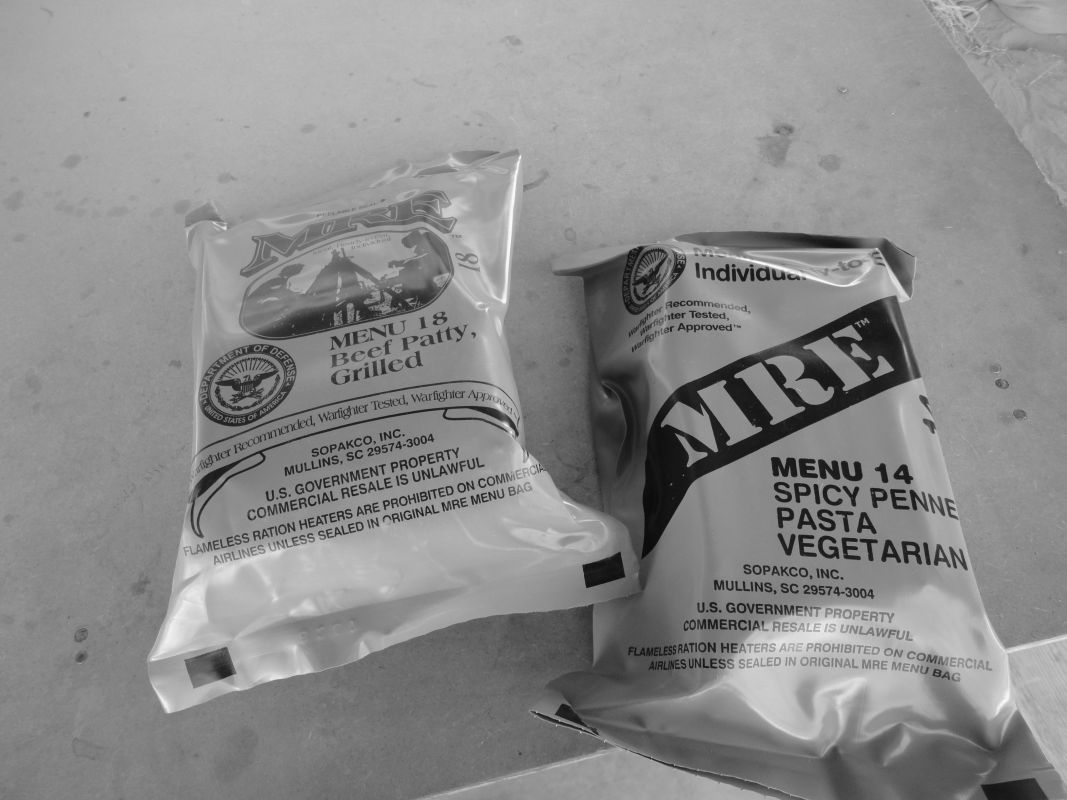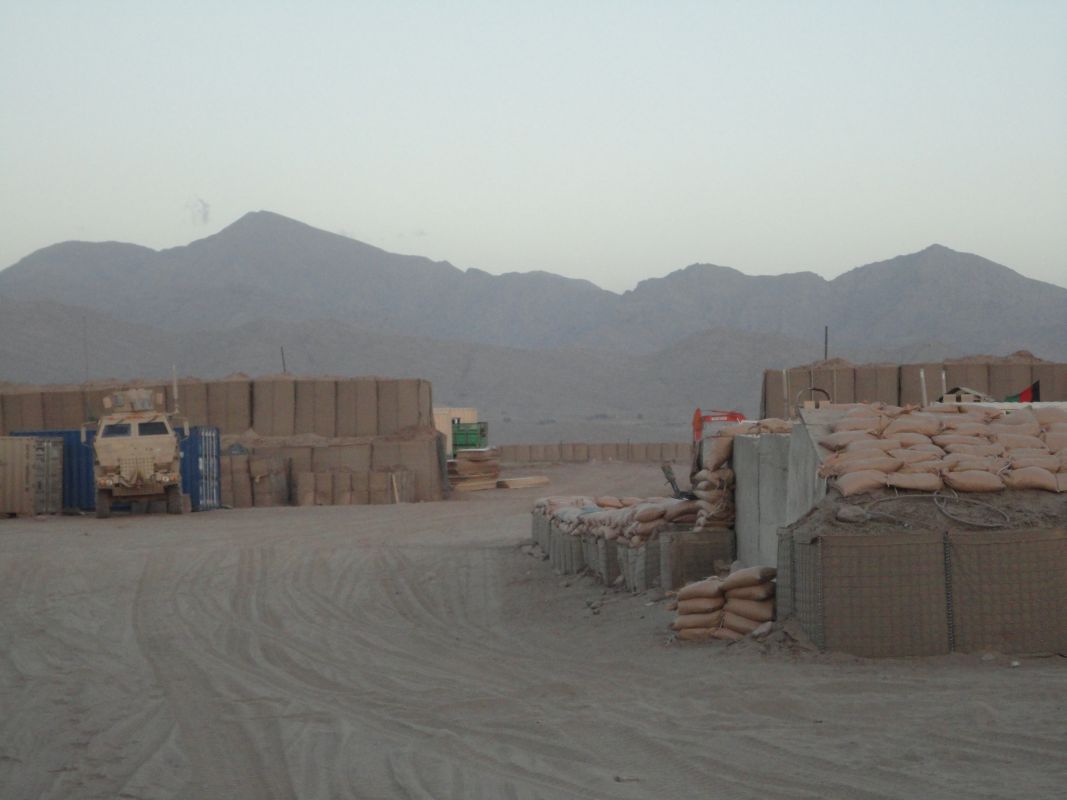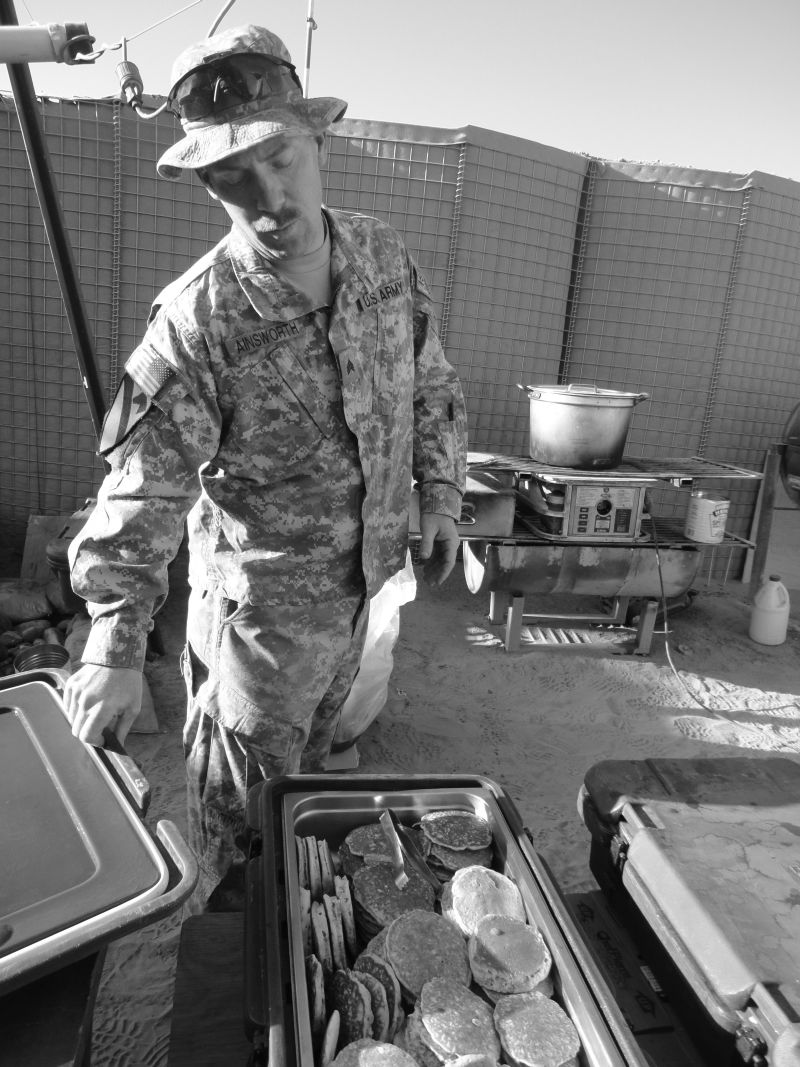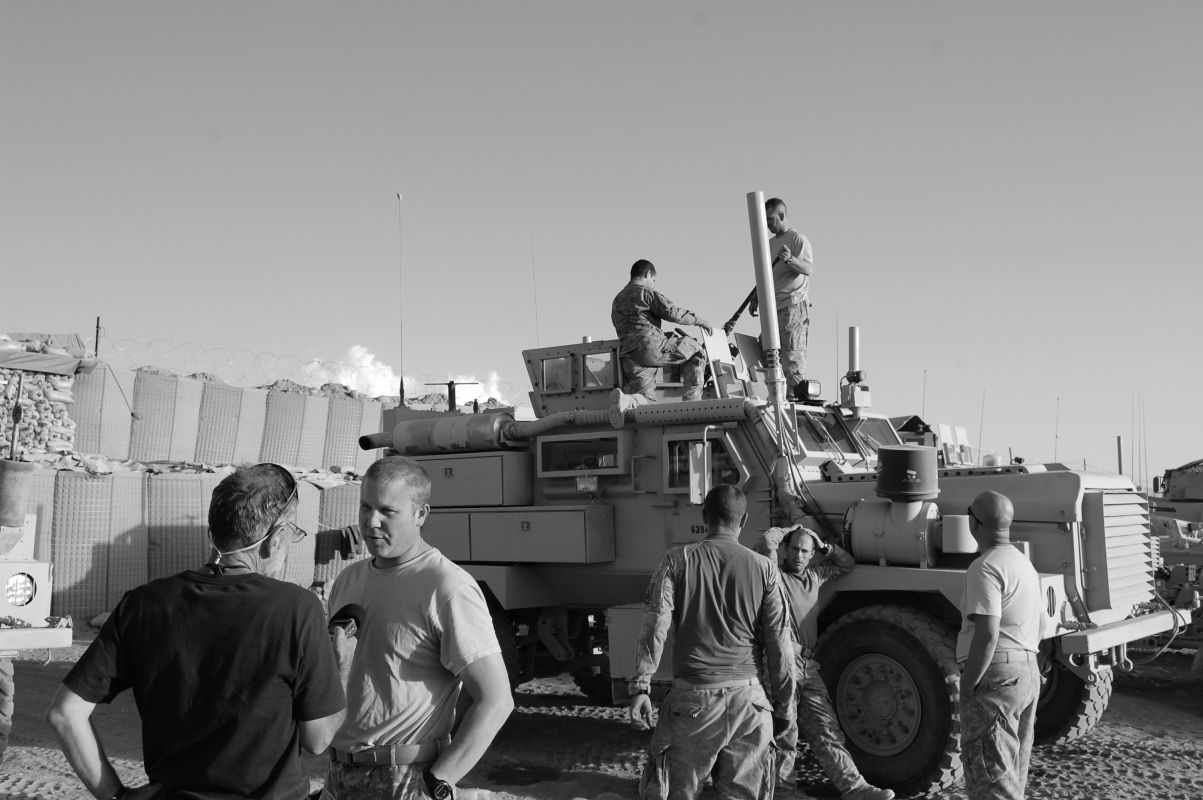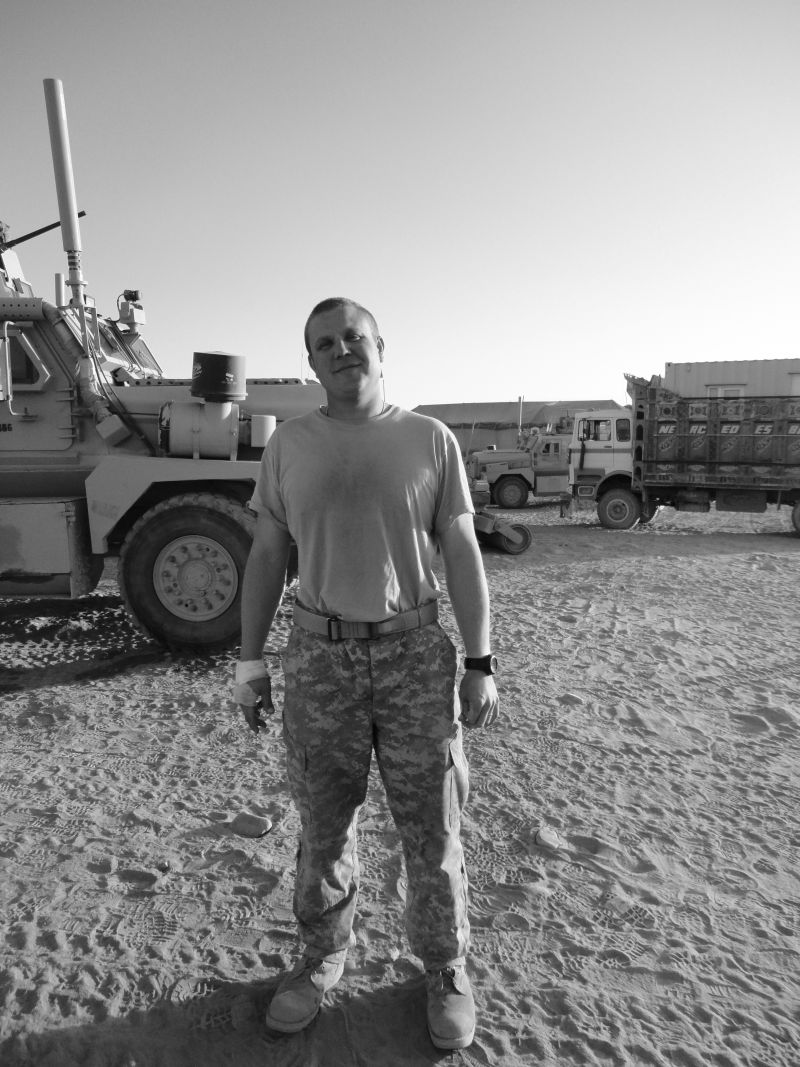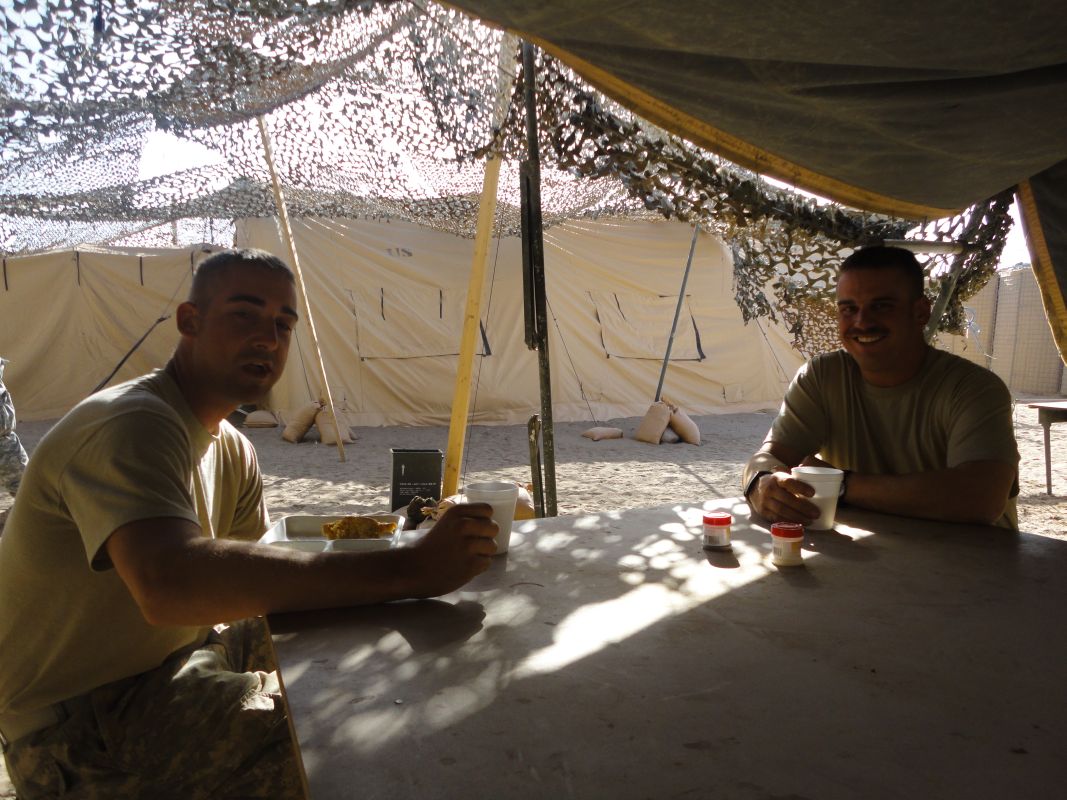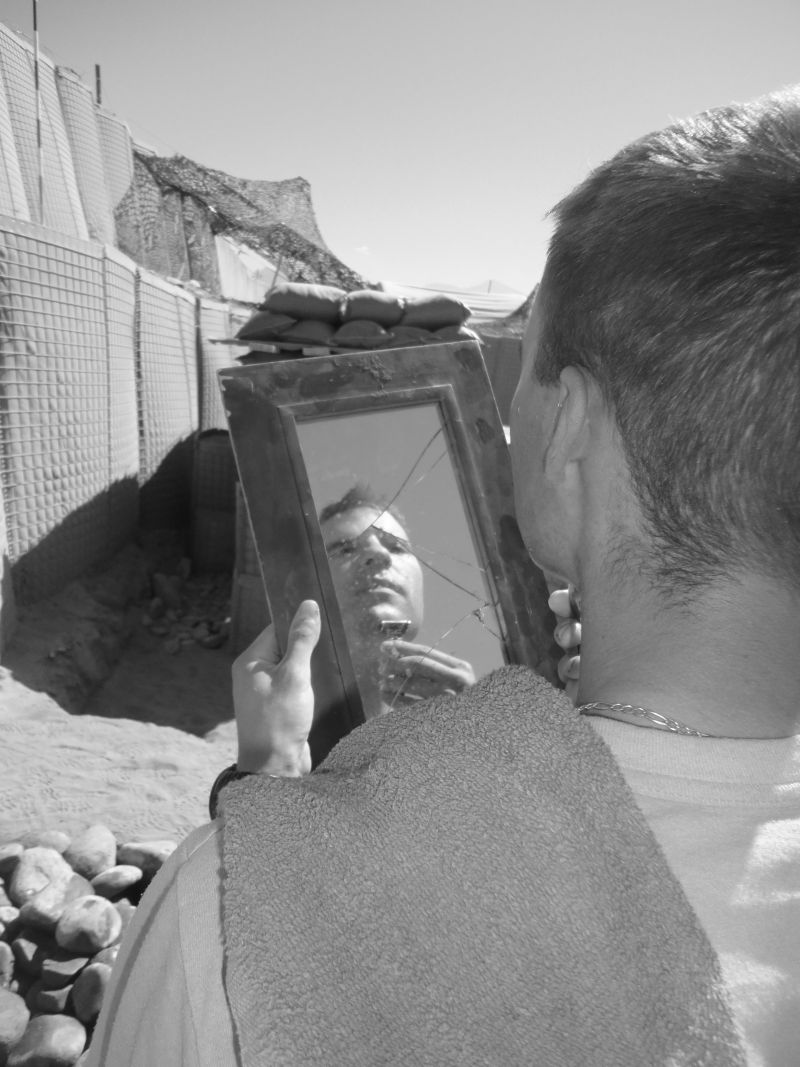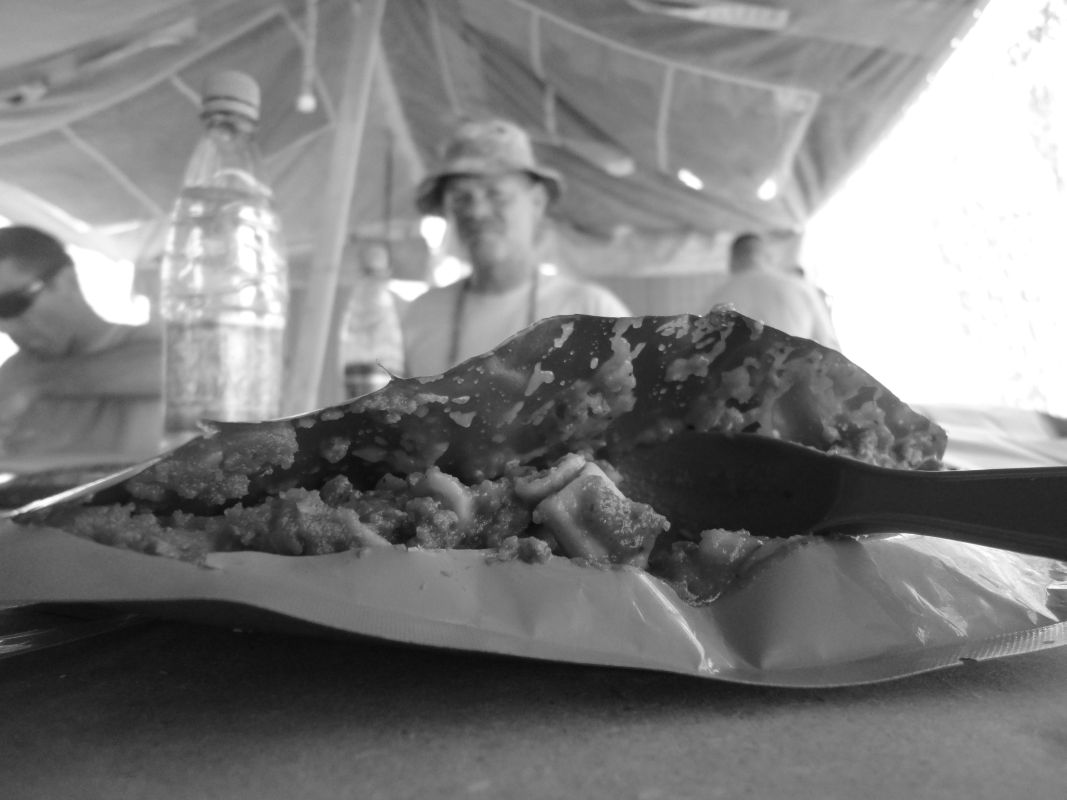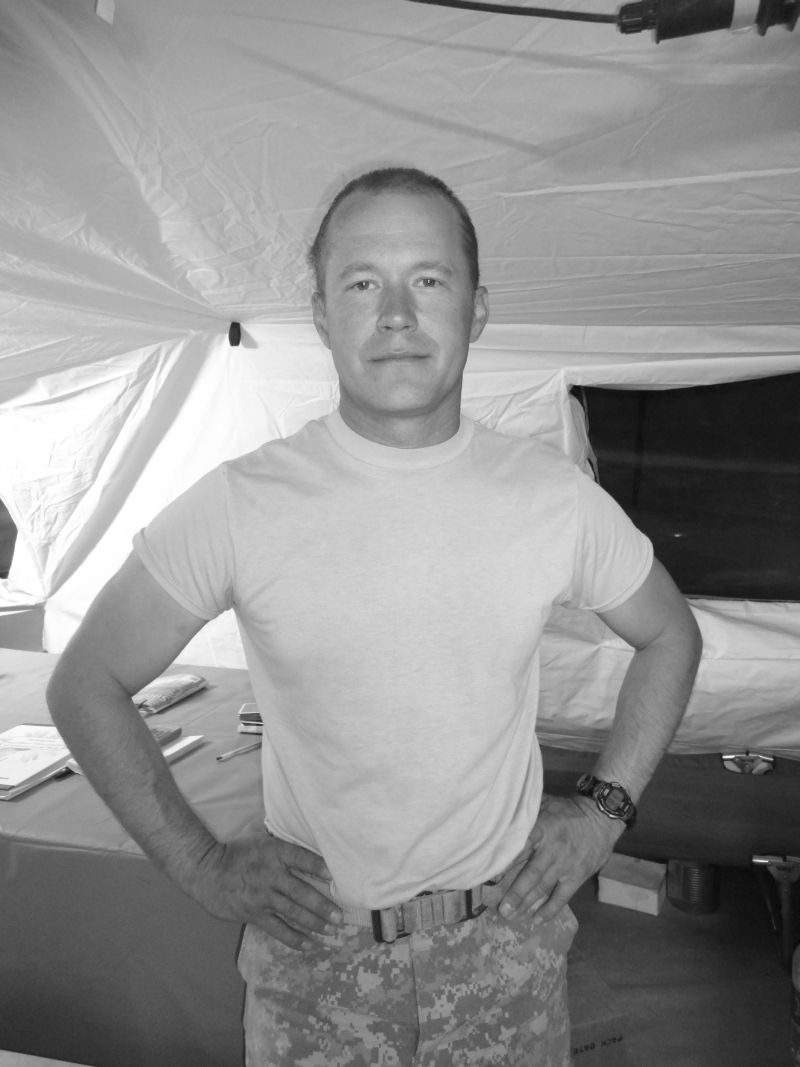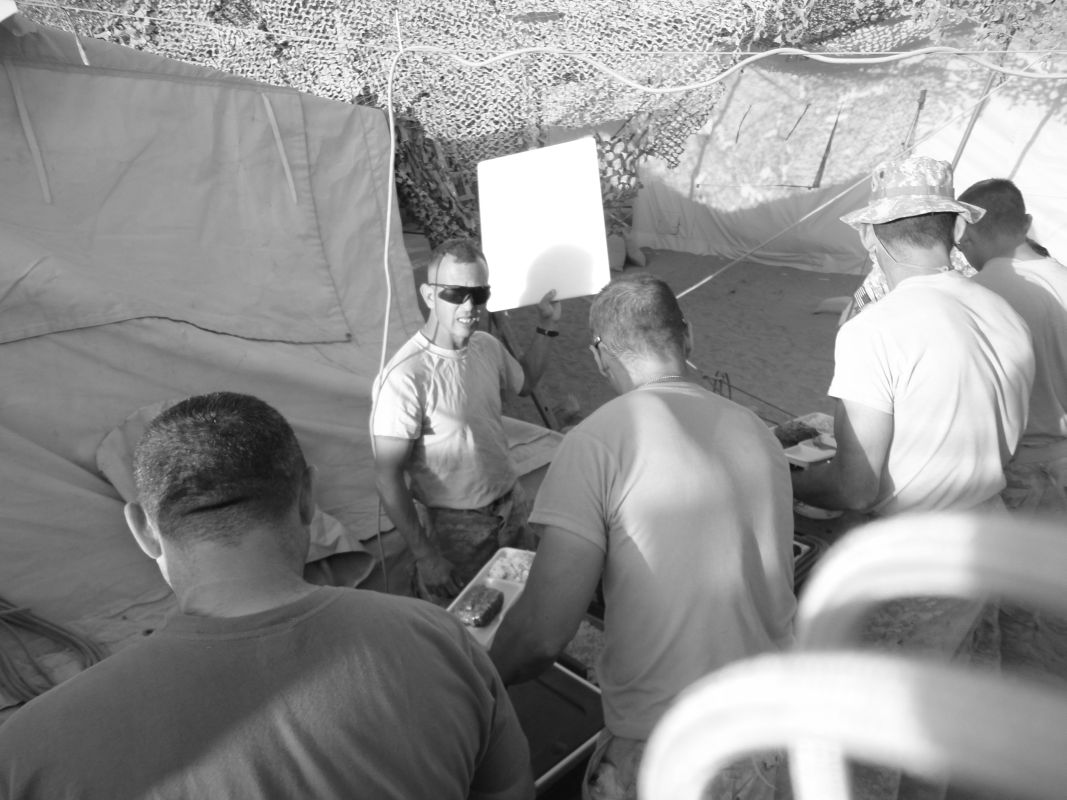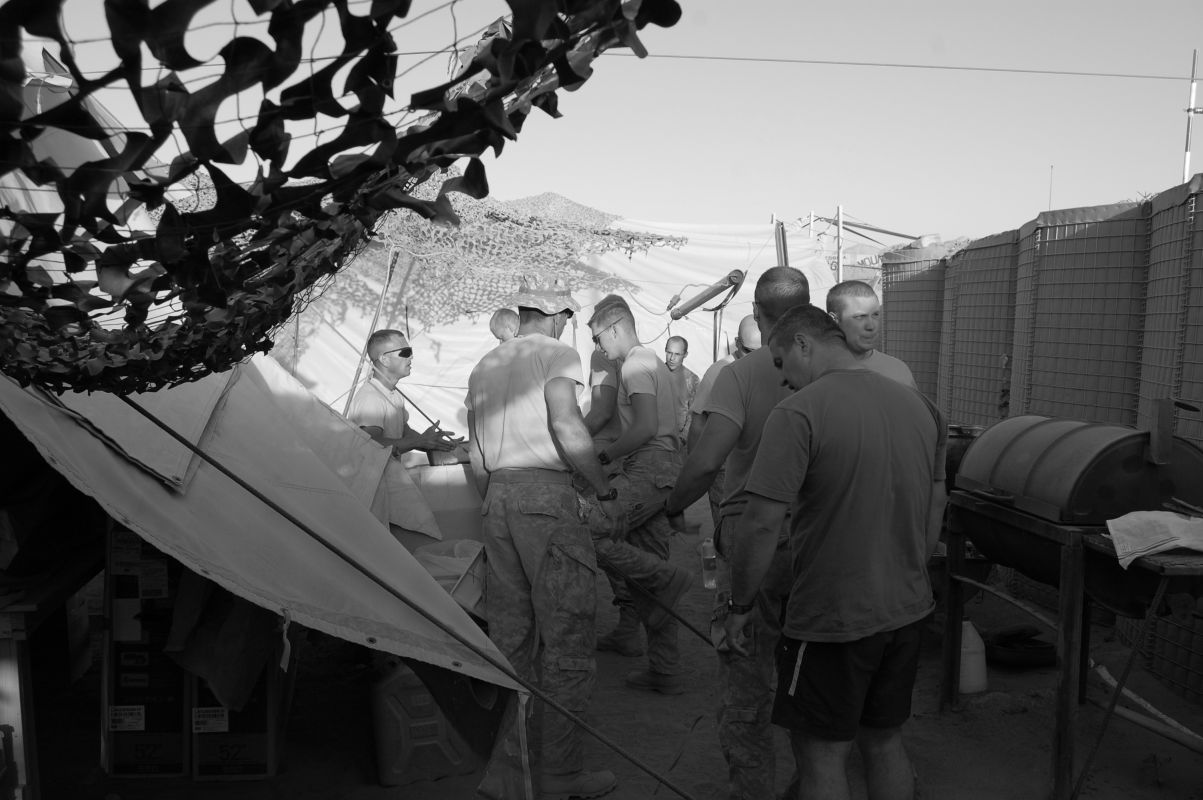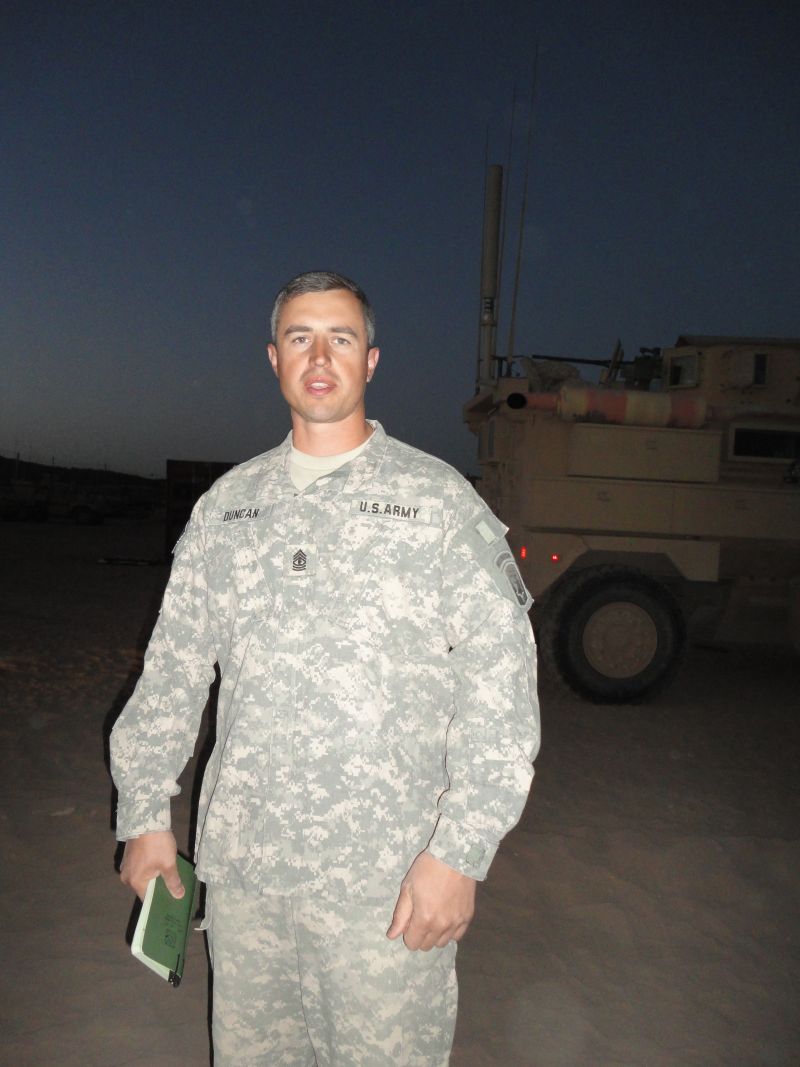I wrote earlier about the fairly basic living conditions at Combat Outpost Red Hill in Parwan Province and Dand Patan here in Patyka Province.
Joint Combat Outpost Raman Kheil which is occupied by Delta Company of 3-172nd, 86th Brigade of the Vermont National Guard stands on a patch of dusty moonscape. The high walls keep insurgents at bay, but the wind moves over them with impunity, gathering the dust in whirling sheets and draping it over everything.
The kitchen is a single propane burner located outside. We dine at a makeshift table set up in a tent with a 2X4 as a center pole. Some well-populated sticky fly strips provide a festive touch.
Personal care facilities are minimal here. There are a couple of solar showers. The soldiers perform their morning ablutions over a pit of rocks and shave with a cracked mirror in one hand and a razor in the other. Nature’s call is answered behind a sandbag wall at a rectangular rock pit periodically doused with diesel fuel, or in the privacy of a small tent with the use of a biodegradable plastic bag.
Breakfast and dinner are hot meals, thanks to the efforts of Sgt. David Ainsworth who’s from the Brattleboro area and Staff Sgt. Steve Kaplowitz of Burlington.
Lunch is serve-yourself. Stacked in cases in the sand is a limited selection of “Heater Meals” and dreaded MREs: “Meals Ready To Eat”. I haven’t met the soldier who has anything good to say about MREs, but they can be the only option during long stretches in the field. I had my first MRE for lunch yesterday, so I’m no expert. While I ate, a group of soldiers sitting with me in the tent with the fly strips offered some well-meaning observations on the effect of Meals Ready to Eat on the gastro-intestinal system.
There’s something about MREs that approximates the flavor of food, without tasting quite like the actual food. That said, my "Spicy Penne Pasta" MRE wasn’t all that bad. Oddly, the raisins included as a snack tasted terrible. How do you screw up a raisin?
Most of the soldiers seem to skip the pre-packaged military fare and lunch on their personal stashes of food sent from home.
The soldiers bunk together in a big tent next to the dining area. I’m a short distance away with a group of Macedonian Army Rangers (they say “Mackedonia”) who’ve outfitted themselves with satellite TV and their own tasty looking meals. There’s a long-standing Vermont Guard-Macedonia connection. At Raman Kheil the rangers are responsible for guarding the base perimeter and conducting joint missions with Afghan National Army soldiers stationed here.
One of the most isolating aspects of living at this combat outpost is the limited communication with family and friends back home. Generally, soldiers at this location don’t have ready access to the Internet and cell phone options are expensive or unreliable from what I've been told. They tell me contact with loved ones is harder to maintain here at Combat Outpost Raman Kheil than it’s been at other bases.
Bases are like cities: the larger they are the less friendly the people. This is a small place and in the three days I’ve been here, I’ve had lots of opportunities to talk to soldiers about their deployment, their lives and their plans for the future.
Reporter's Journal
VPR's Steve Zind is spending three weeks in Afghanistan, covering some of the 1,500 members of the Vermont National Guard who are deployed there.
He'll provide a close-up view of the Guard's mission and how things are going from their perspective.
The Reporter

Steve has been with VPR since 1994, first serving as host of VPR’s public affairs program and then as a reporter, based in Central Vermont. Many VPR listeners recognize Steve for his special reports from Iran, providing a glimpse of this country that is usually hidden from the rest of the world.
